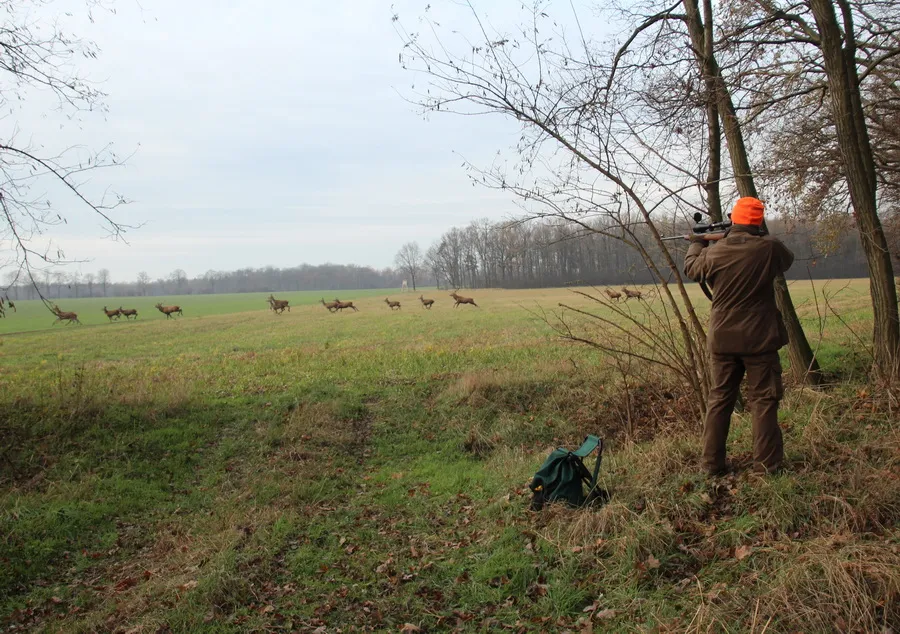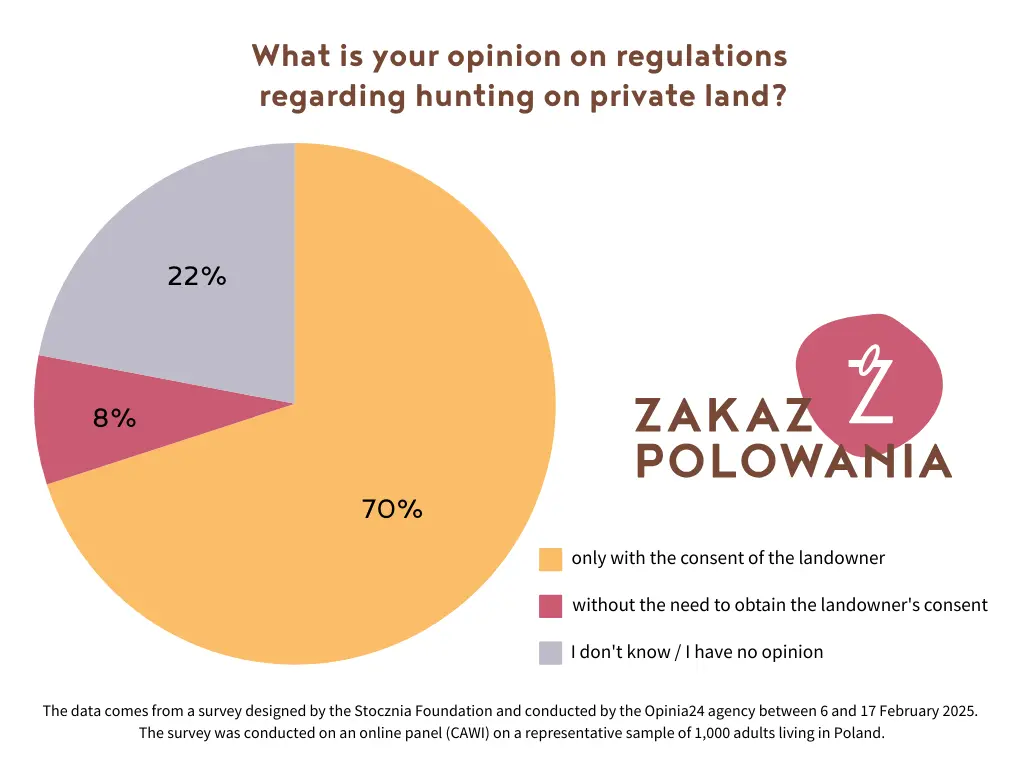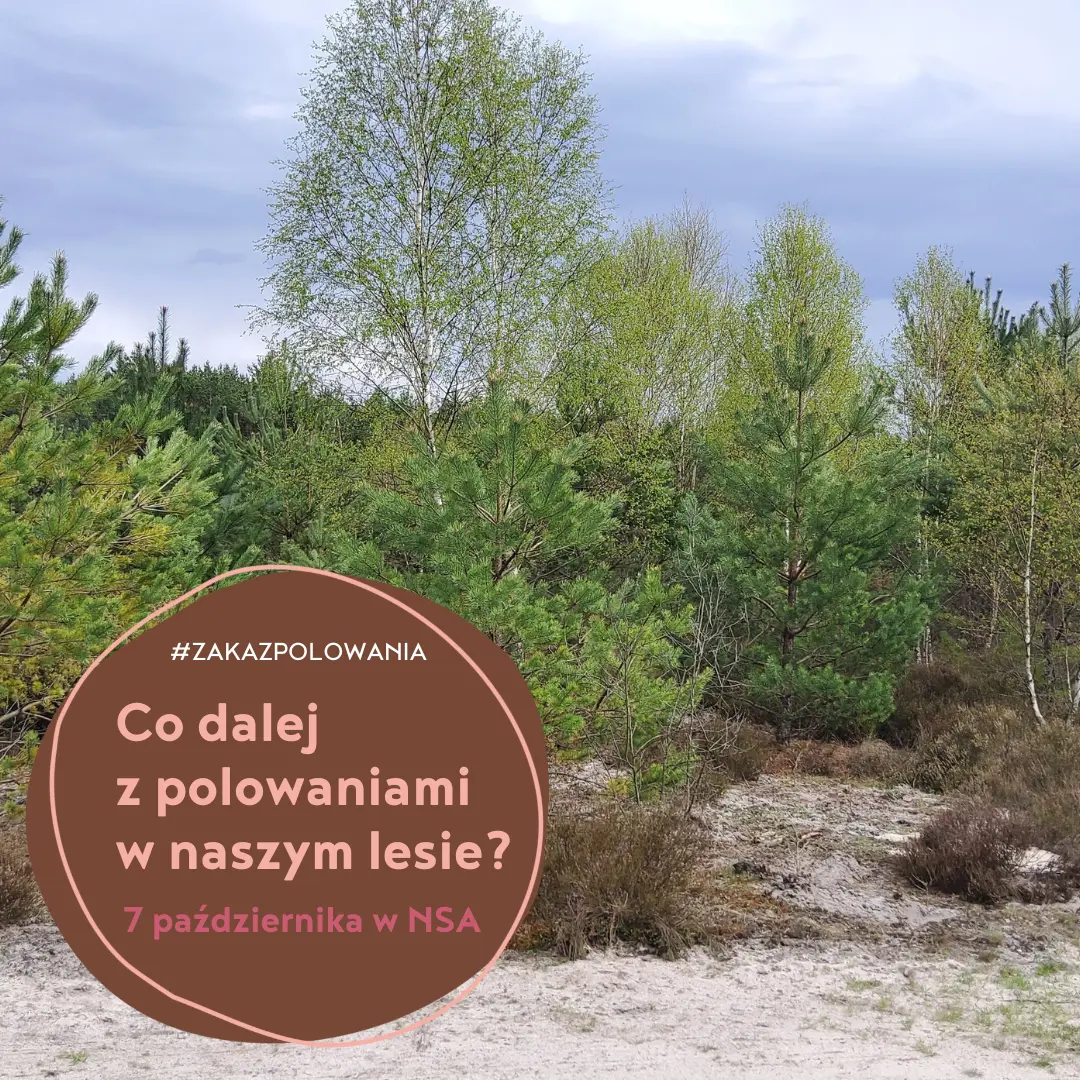Right to a Forest Without Hunting
On 7 October 2025, the Supreme Administrative Court (NSA) will hear our cassation appeal in a case that touches two fundamental rights: the right to property and the freedom of conscience. The core question is simple yet crucial: can the state force private landowners — including an animal-protection NGO — to tolerate hunting on their own land?
The following article was produced as part of a project funded by a grant from the European Union under the SPLOT WARTOŚCI initiative. The programme is financed by the European Union. The views and opinions expressed are solely those of the author(s) and do not necessarily reflect those of the European Union or the European Commission. Neither the European Union nor the granting authority can be held responsible for them.

From private property to state-imposed hunting districts
Before World War II, Polish law tied the right to hunt to land ownership. That changed in 1952, when - under the communist regime - the state divided the entire country into administrative hunting districts (obwody łowieckie) and handed game management over to local hunting clubs affiliated with the government-controlled Polish Hunting Association (PZŁ). At that time, private owners had no rights whatsoever: their fields, meadows and forests were incorporated into hunting districts by state decree.
The 1995 Hunting Law maintained this model: provincial assemblies (Sejmik) create or redefine districts by local by-law, while landowners have no real say.
The first court battle and a turning point in 2014
In 2011 a farming couple (Grażyna and Ryszard B.) challenged the inclusion of their property in a hunting district. They lost in the regional administrative court (WSA), which held that limiting ownership to allow hunting was “within acceptable bounds”. They appealed and invoked recent European Court of Human Rights case-law (Herrmann v. Germany) stressing that owners cannot be compelled to tolerate hunting contrary to their convictions.
Seeing a serious constitutional issue, the NSA asked Poland’s Constitutional Tribunal (TK) to review the law. On 10 July 2014, the Tribunal ruled that the legal basis for creating hunting districts (Article 27 of the Hunting Law) was unconstitutional because it excluded private owners from the process. The Tribunal deferred the loss of force to give Parliament time to fix the law — but when the deadline expired in January 2016, the old basis disappeared from the statute book.

2016–2018: A landmark victory and a domino effect
With the core provision gone, our association (ODE “Źródła”) won a landmark case: in December 2016 the Łódź WSA ruled that using our 4.5-hectare forest for hunting was fundamentally incompatible with our statutory mission (humane protection of animals). This precedent was the first of its kind in Poland and opened the way for other landowners across the country. Following our victory, administrative courts went on to issue around 150 further judgments excluding private plots from hunting districts.
In 2018 Parliament put Article 27 back into the law in almost the same form. The “new” rules introduced a formal step for owners to submit comments on draft district maps — but those comments are non-binding. In practice, authorities across the country rejected hundreds of owner submissions; the new maps were adopted anyway.
2019–2022: Deadlines stretched, old problems return
Parliament repeatedly extended the validity of the old districts (first to 2021, then to 2022), despite the 2014 constitutional ruling. By spring 2022, all provinces had adopted new district maps. Our forest was again placed inside a hunting district. We filed formal comments (ignored), then challenged the by-law in court. On 7 July 2022 the Łódź WSA dismissed our case, reasoning that we had not shown “special characteristics” of the land that would make hunting incompatible - as if the only thing that mattered were physical features of the forest, not the owners’ mission and convictions.
The 2018 amendment also created a narrow pathway for natural persons: an individual owner can file, in person before the County Governor (starosta), a declaration banning hunting on their plot. This option does not remove the land from the district, and it is unavailable to legal persons such as associations or foundations. In practice, NGOs and companies cannot protect their land the way individual citizens can - a disparity the Ombudsman has criticised.

October 2025: Our cassation appeal
We brought a cassation appeal to the Supreme Administrative Court (NSA). Our case is unique: it is the first to directly combine the right to property with the freedom of conscience of an organisation dedicated to protecting animals. Forcing an animal-protection NGO to tolerate the killing of animals on its own property conflicts with the very purpose for which the property is owned and used.
The outcome will matter beyond our forest. Several owners - individuals and a company - have already taken similar cases to the European Court of Human Rights. But our case before the NSA is the only one in which an animal-protection association argues that compelled hunting violates not just ownership, but also its core values and mission. It may therefore set an important precedent for aligning Polish practice with European human-rights standards and with the Constitutional Tribunal’s 2014 ruling.
Transparency matters — and so does impartiality
One more problem surfaced along the way: opacity. In Poland, only members of PZŁ (and, in practice, paying hunting tourists) can kill wild animals in the form of hunting. There is no public register of PZŁ members, so citizens cannot verify whether decision-makers: MPs, ministers, police officers, even judges - are hunters. In our case, one judge listed for our NSA panel turned out to be a PZŁ member; after a motion for recusal, he was excused from the case. Whatever the law says, justice must also be seen to be done.
What we want to change
We believe landowners - including NGOs - must have a meaningful, legally effective way to exclude their property from hunting districts, or at least to veto hunting on their land without jumping through impractical hoops. Authorities must also actually consider owners’ comments when drawing district maps. Finally, the public needs transparency about who is a hunter when laws and decisions concerning hunting are made.
After the NSA hearing on 7 October 2025, we will update this page with the outcome and next steps.
Update – 7 October 2025
Unfortunately, the Supreme Administrative Court (NSA) dismissed our cassation appeal.
In its oral reasoning, the Court acknowledged that the compulsory inclusion of a private forest in a hunting district does constitute an interference with the right to property, but deemed it “justified and proportionate.”
The judges interpreted Article 27(12) of the Hunting Law very narrowly — ruling that a landowner’s “comments” on a draft regional hunting map may only be accepted if the property has special characteristics or if specific activities are carried out there that would be restricted by hunting management. Moral or ethical objections, or a simple unwillingness to tolerate hunters on private land, were not considered valid grounds.
According to the Court, allowing objections not limited to those “special circumstances” would “hinder the Polish Hunting Association (PZŁ) in carrying out the tasks entrusted to it by the state.” The judges further stated that it is “beyond dispute” that hunting management is necessary “as an element of environmental protection.”
The Court did not address any of our arguments relating to the moral convictions of our members or the statutory goals of our association. It also failed to refer to the case law of the European Court of Human Rights or to consider the constitutionality of the current legal framework. The Court simply concluded that the Regional Assembly (Sejmik) was entitled to reject our 2022 objection — without regard to what this means in practice: that we are compelled to tolerate the killing of animals on our own land.
The ruling is deeply disappointing for anyone who expected the country’s highest administrative court to exercise constitutional reasoning or interpret the law in the spirit of human rights, rather than in a purely technical and literal way. It is also disappointing that the Ombudsman (RPO) did not intervene in this case, despite previously stating publicly that the current provisions fail to protect property owners’ rights and that the 2014 Constitutional Tribunal ruling was never properly implemented. Had such an opinion been included in the case file, the Court could not have ignored these concerns so completely.
Today’s judgment is final and exhausts all domestic remedies, which opens the way for an application to the European Court of Human Rights in Strasbourg. Unfortunately, this means several more years of waiting. In the meantime, hunting will continue in our forest — the next collective hunt is already scheduled for 26 October.
See also:
Overview of Hunting Governance Models in EU Countries



